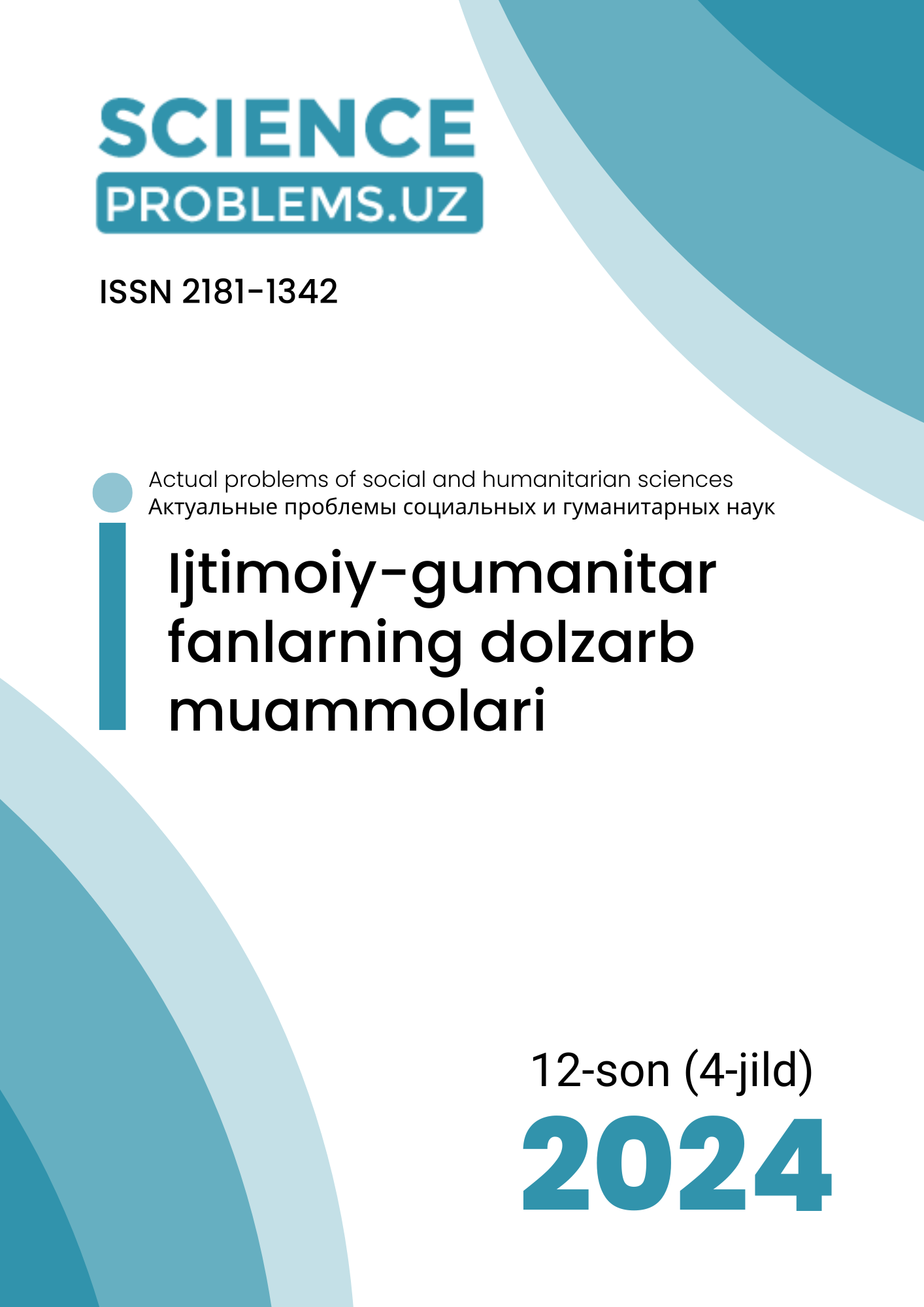INGLIZ TILIDA “POISON-ZAHAR” KONSEPTINING SEMANTIK XUSUSIYATLARI
Kalit so'zlar
https://doi.org/10.47390/SPR1342V4I12Y2024N48Kalit so'zlar
zahar, sintagmatika, paradigmatika, leksik-semantik maydon, retseptor, polisemantik, intensivlik, sema.Annotasiya
Maqola ingliz tilida “poison-zaxar” semasiga ega boʻlgan soʻzlarning semantik xususiyatlarini tahlil qilishga bagʻishlangan boʻlib, unda ingliz tilidagi bunday leksemalarning axborot etkazishdagi roli va ularning stilistik xususiyatlari yoritilgan.
Manbalar
1. Safarov Sh. Semantika. T., 2013. -340 b.
2. Sh.Iskandarova.O‘zbek tili leksikasini mazmuniy maydon sifatida o‘rganish (shaxs
mikromaydoni).- filol. fanlari dok. avtoreferat-T.1999.
3. A.Sobirov.O‘zbek tilining leksik satxini sistemalar sistemasi tamoyili asosida tadqiq etish.-
T.Ma’naviyat.2004.
4. Sh.Shokirov. Turli tizimli tillarda «ko‘z» leksik-semantik maydoni va uni tashkil etuvchi
til birliklari tipologiyasi. – f.f.f.dok. aftoreferat- T. 2020.
5. Vejbitskaya A. Semanticheskie universalii i opisanie yazo‘ka. –M., 1999. –293 s.
6. Webster’s third new international dictionary of the English Language”, Könemann, 1993
[ R. 2343]G‘
7. HornbyA.S.OXFORD Advanced Learner*s dictionary. sixth editionG‘ Edited by Sally
Wehmeier. OXFORD UNIVERSITY PRESS, 2000. P. -83.
8. Joanne Kathleen Rowling. Harry Potter and the Philosopher's Stone [Text] G‘ J. K. Rowling.
— London : Bloomsbury, 2001.
9. J ohnGalsworthy.Apple Tree and other stories [Text] G‘ J. Galsworthy. - M. :Izd-volit.
nainostr.yaz., 1961.
10. Charlotte Bronte. Jane Eyre [Text] G‘ Ch. Bronte. - London :J.M. Dent and Sons LTD; N-Y :
E.P. Dutton and CO INC, 1953.
11. Arthur ConanDoyle. The adventures of Sherlock Holms [Text] G‘ A. Conan Doyle. - M.:
Menedjer, 2006.








